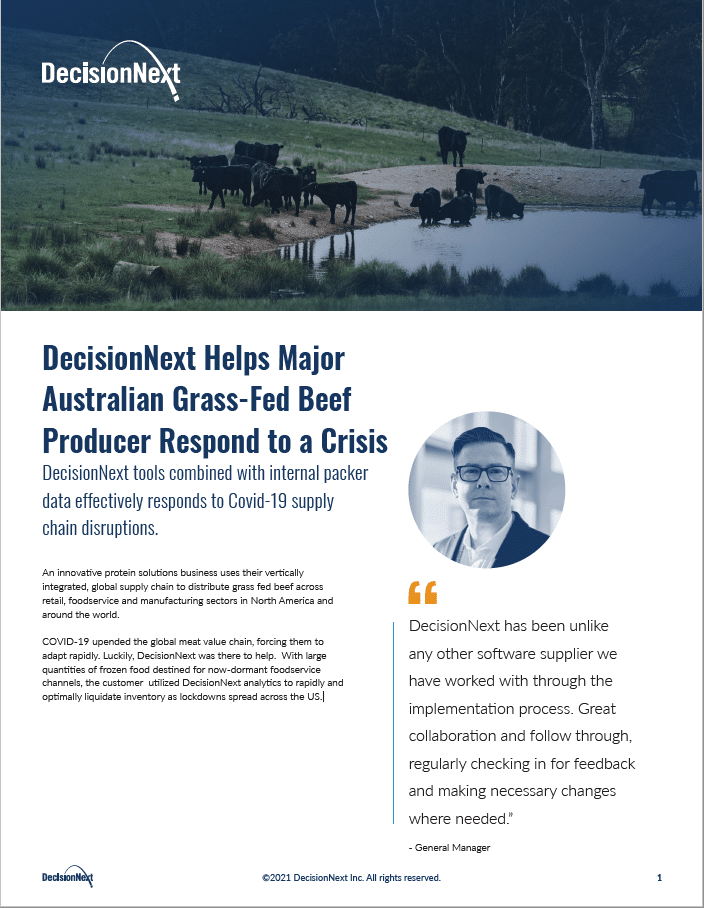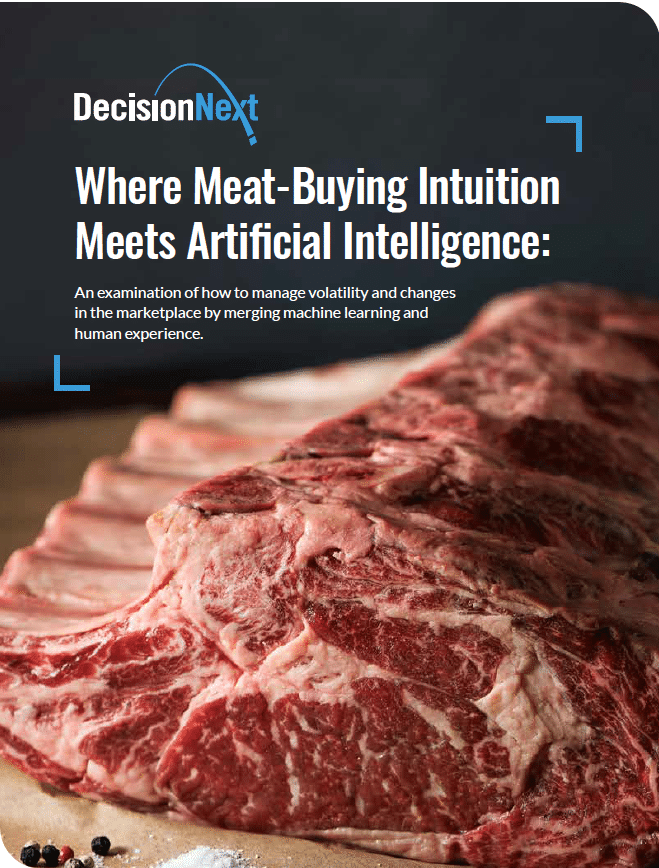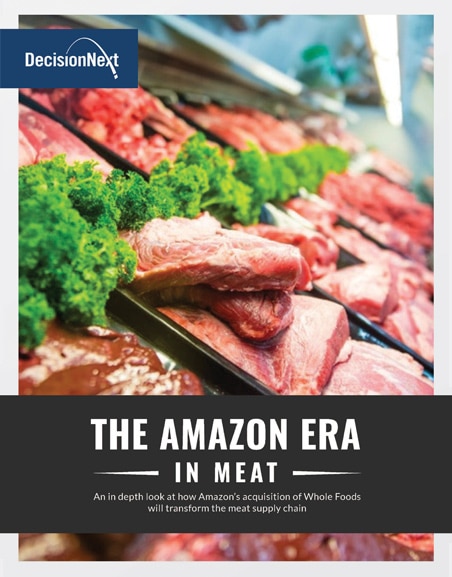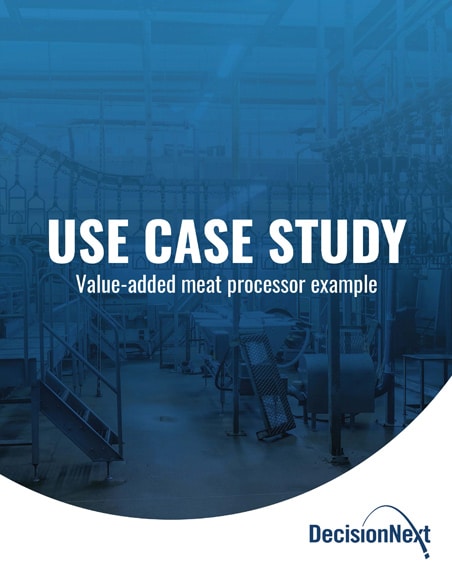If Amazon’s approach to other sectors is indicative of the approach they will take to grocery, they will force competing retailers to ask much more of their suppliers. We can expect Amazon, “Earth’s Most Customer-Centric Company,” to leverage their analytics capabilities to personalize each customer’s shopping experience. Competing in this critical arena will force the retail industry to refine their understanding of consumer preferences, real time demand, time boxed offerings (like fresh meal kit delivery), increasing demands on their suppliers. How will suppliers react to increased expectations in this new environment?
These increased expectations for suppliers will force meat companies to differentiate their product and service offering instead of competing as a commodity. Suppliers will compete for retail market share that will no longer be based on price, it will be based on sophisticated service, superior logistics capability and dynamic pricing. How will meat companies integrate in a new digital world that seamlessly connects consumers with the value chain in ways that improve consumer experience while decreasing price?
Will we look back on this moment as a pivotal point that separates those meat companies who saw where the puck was headed and those who didn’t realize the puck was moving? Unlike Borders, Tower Records, or Circuit City let’s just assume the answer is yes.
In light of this chain reaction, how can meat processors position themselves to win in an Amazon driven environment?
1) Remember that the same Amazon that knows the top 10 items you are likely to buy and how much you’re willing to pay based on your purchase and search history is the same Amazon bringing a new level of competition near you.
2) Build an analytics capability roadmap. Whether that means hiring new employees, turning to external experts, or a hybrid of the two, meat processors need to step up their analytics capability. It’s quite a journey from diagnostic analytics to prescriptive analytics so you’ll need a plan that gets the necessary resources to support its success.
3) The days of differentiating on price or incremental “partnership capabilities” are numbered. What radical moves can you take to position your company as a solution to your retail customer who is now terrified?
4) Learn a thing or two from Jeff Bezos. Twenty years ago, in Bezos’s first letter to shareholders, he told us how to take over the world and then did it: “It’s all about the long term… We will continue to make investment decisions in light of long-term market leadership considerations.”
How do you anticipate the meat value chain will change in the Amazon era?
This post was originally published on Meatingplace.









